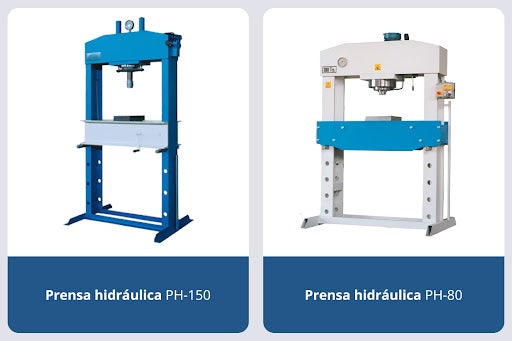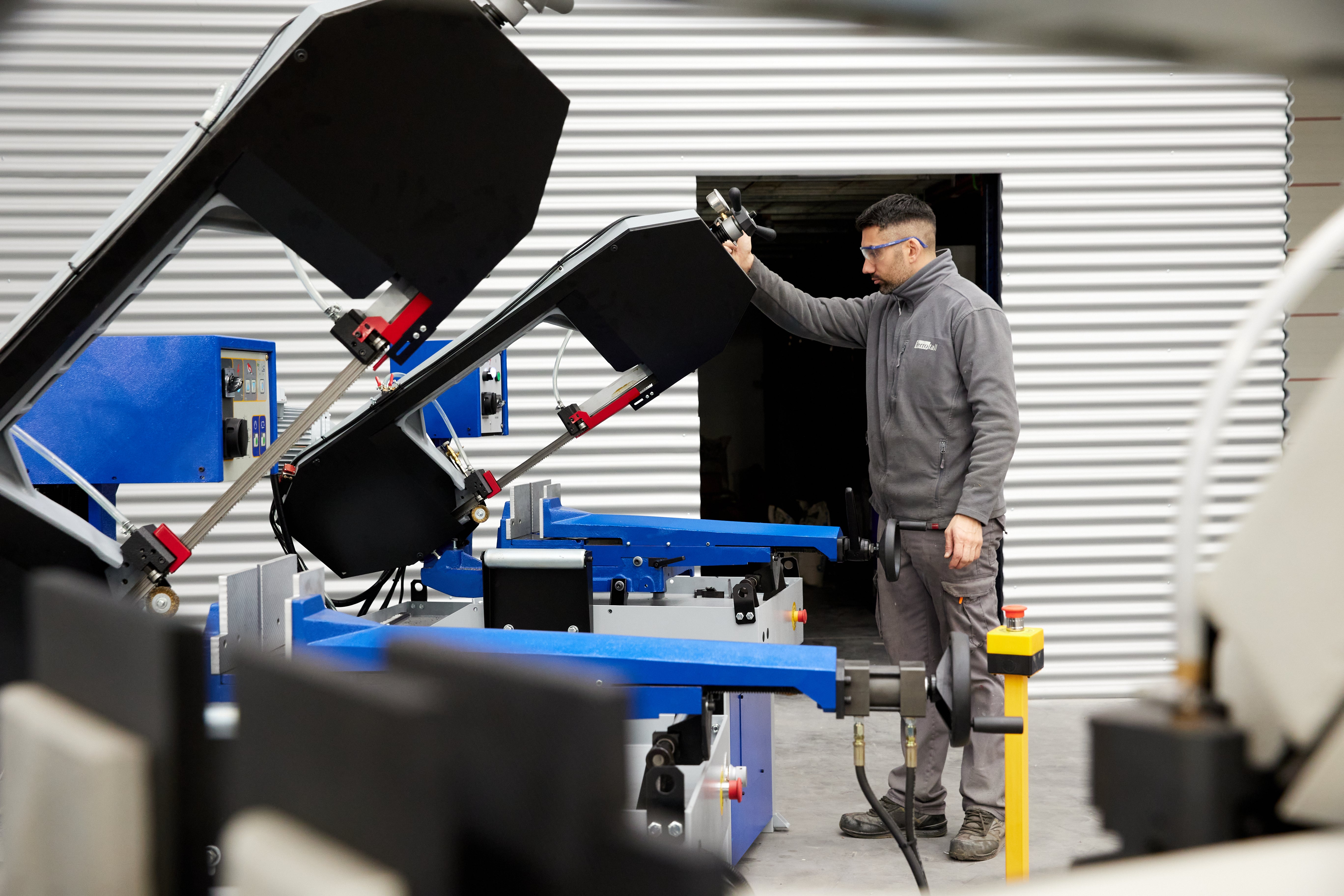
What is a hydraulic press used for? Types, operation, and uses
Today, hydraulic presses are essential in various industrial sectors, revolutionizing the way materials are handled and processed. But what are they really, and how can they improve your industrial production ? Immerse yourself in the world of engineering and discover how these powerful machines can transform your work.
What is a hydraulic press and what is it used for?
Hydraulic presses are ingenious mechanical devices that use fluid flow, usually hydraulic oil, to generate force. Their primary function is to compress various materials to compact and pack them efficiently . Since their invention in the 17th century by the ingenious Joseph Bramah, these presses have been an indispensable tool in industry, used in a wide range of industrial processes.
Types of hydraulic presses
Hydraulic presses can be classified into several types according to their operating mechanism and the compression technology used:
Conventional hydraulic presses : They use hydraulic oil to develop force and compress materials.
Hydroforming presses : They use water as a means of exerting pressure, pushing the liquid into the closed system to deform the material to be pressed.
Differences between a hydraulic and mechanical press
Although both hydraulic and mechanical presses have their place in the industry, there are significant differences between them in terms of performance and applications:
● Speed : Mechanical presses are typically faster in terms of pressing cycle, while hydraulic presses can be slower but offer greater flexibility and control in the applied force.
● Stroke Length : Hydraulic presses can offer superior precision in terms of stroke control, making them ideal for applications requiring tight tolerances.
Advantages of using a hydraulic press
Hydraulic presses offer a number of significant advantages that make them preferred in many industrial applications:
Uniform force : They maintain a constant force throughout the entire stroke, making them ideal for applications requiring uniform pressure.
Flexibility and versatility : They offer precise control over parameters such as force, stroke and working time, allowing them to adapt to a wide range of industrial processes.
Lower maintenance costs : Its simple design and fewer moving parts reduce maintenance costs and increase the machine's lifespan .
Overload safety : They incorporate safety systems that prevent damage due to overload, guaranteeing the integrity of both the machine and the operator.
Disadvantages of a hydraulic press?
Despite their numerous advantages, hydraulic presses also have some limitations:
● Speed : They are generally slower than mechanical presses, which can be a drawback in applications that require fast pressing cycles.
● Automatic feeding equipment : Requires feeding systems
external , which can increase the complexity and cost of the system.
● Shock after initial time in punching process : This problem may require additional protective measures to prevent damage to lines and connections.
In short, hydraulic presses are an indispensable tool in modern industry, offering a unique combination of strength, flexibility, and control. If you're looking to improve efficiency and productivity in your manufacturing process, don't hesitate to explore the hydraulic press options offered by Helfer Industrial ! Check out our wide range of products and discover how we can help you achieve your industrial goals.

